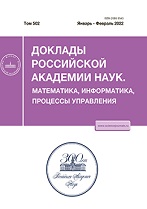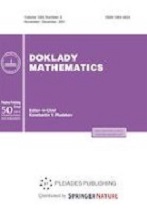|
SPECIAL ISSUE: ARTIFICIAL INTELLIGENCE AND MACHINE LEARNING TECHNOLOGIES
Probability calibration on the example of improving early cancer detection: a fuzzy set theory approach
O. A. Filimonova, A. G. Ovsyannikov, N. V. Biryukova
I. M. Sechenov First Moscow State Medical University, Resource Center "Medical Sechenov Preuniversary", Moscow, Russian Federation
Abstract:
Cancer is the leading cause of death before the age of 70 years. Cancer mortality is reduced by early detection. To improve the early diagnosis of cancer, we propose a novel probability calibration method based on a fuzzy set theory. Our model for binary classification was tested on the detection of female breast cancer and lung cancer. The first case is complicated by a small data set problem, while the second – by highly imbalanced data. In both cases, our probability calibration method improved Log Loss (the best result is improved on 48.86%), Brier score (the best result is improved on 13.24%), and the area under the PR curve (the best result is improved on 13.94%). The application area of our algorithm can be extended to any progressive diseases and events without a clearly defined boundary.
Keywords:
probability calibration, fuzzy set theory, binary classification, early diagnosis of diseases.
Citation:
O. A. Filimonova, A. G. Ovsyannikov, N. V. Biryukova, “Probability calibration on the example of improving early cancer detection: a fuzzy set theory approach”, Dokl. RAN. Math. Inf. Proc. Upr., 514:2 (2023), 20–27; Dokl. Math., 108:suppl. 2 (2023), S179–S185
Linking options:
https://www.mathnet.ru/eng/danma447 https://www.mathnet.ru/eng/danma/v514/i2/p20
|


| Statistics & downloads: |
| Abstract page: | 96 | | References: | 17 |
|





 Contact us:
Contact us: Terms of Use
Terms of Use
 Registration to the website
Registration to the website Logotypes
Logotypes








 Citation in format
Citation in format 